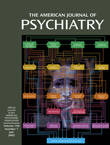Narcolepsy Presenting as Schizophrenia
Mr. A, a 48-year-old white man, had been admitted to a state psychiatric facility with an acute onset of bizarre behavior and persecutory delusions. Since then he had exhibited frequent episodes of bizarre and agitated behavior, including slamming doors, throwing furniture around, and stealing food from other patients. This necessitated almost daily seclusion or restraint. His behavior and thought disorder did not respond to treatment with antipsychotics, including risperidone, olanzapine, quetiapine, and clozapine. Although Mr. A exhibited hypersomnia, this was initially attributed to neuroleptic therapy. A diagnosis of narcolepsy was considered when a sudden buckling of the knees was observed. This was consistent with cataplexy; Mr. A was therefore referred for a sleep study after tapering of neuroleptics. The sleep study was suggestive of narcolepsy; Mr. A had a mean sleep latency time of 1.7 minutes and onset of REM sleep at under 20 minutes. A human leukocyte antigen (HLA) typing revealed the presence of an HLA DR2 phenotype, which occurs in 85%–100% of white subjects with narcolepsy and cataplexy (1, pp. 669–671).Mr. A was diagnosed with narcolepsy and was given nortryptyline and methylphenidate. His episodes of violent and agitated behavior ceased completely, and there was no thought disorder noted upon serial mental status examinations. He has sustained this improvement at least until the time of this writing, more than 6 months since treatment with the stimulant was first begun.
References
Information & Authors
Information
Published In
History
Authors
Metrics & Citations
Metrics
Citations
Export Citations
If you have the appropriate software installed, you can download article citation data to the citation manager of your choice. Simply select your manager software from the list below and click Download.
For more information or tips please see 'Downloading to a citation manager' in the Help menu.
View Options
View options
PDF/EPUB
View PDF/EPUBGet Access
Login options
Already a subscriber? Access your subscription through your login credentials or your institution for full access to this article.
Personal login Institutional Login Open Athens loginNot a subscriber?
PsychiatryOnline subscription options offer access to the DSM-5-TR® library, books, journals, CME, and patient resources. This all-in-one virtual library provides psychiatrists and mental health professionals with key resources for diagnosis, treatment, research, and professional development.
Need more help? PsychiatryOnline Customer Service may be reached by emailing [email protected] or by calling 800-368-5777 (in the U.S.) or 703-907-7322 (outside the U.S.).

